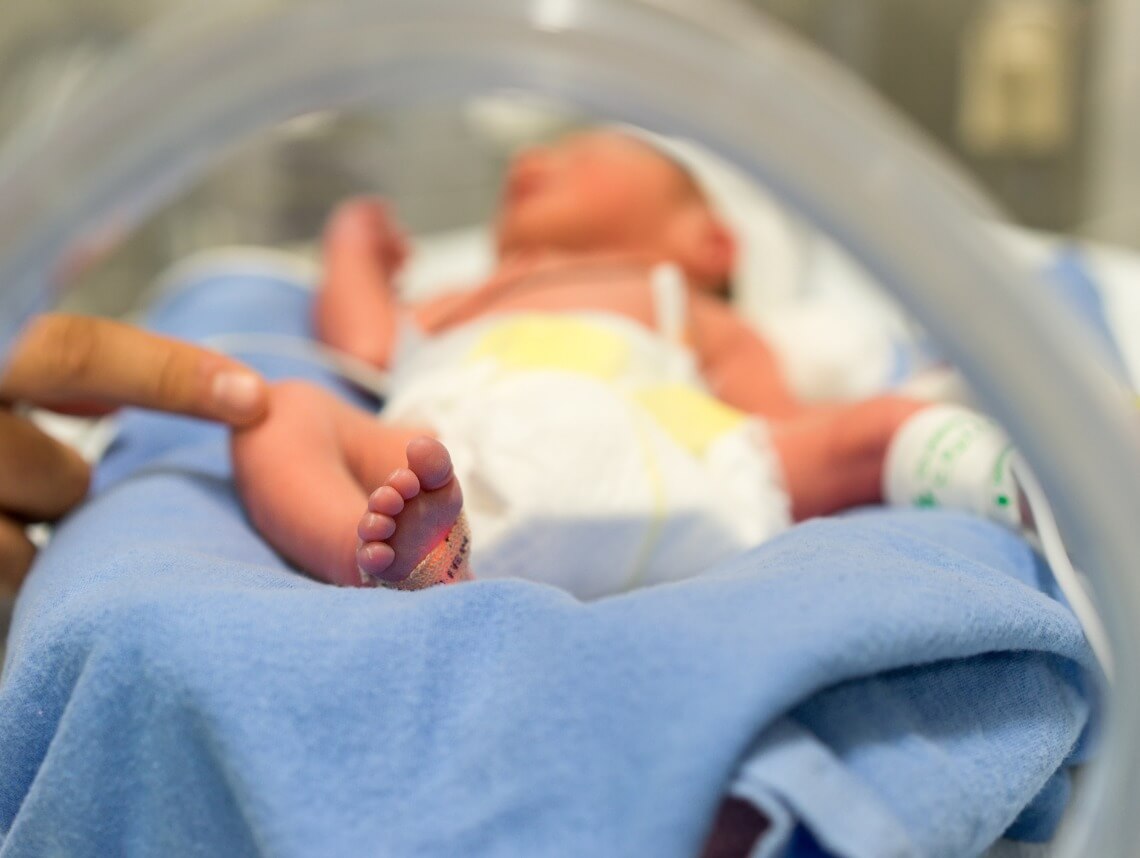Finding out you’re having a baby is life changing. No matter how much you read about the subject or talk with your friends who are already parents, nothing really prepares you for it. And regardless of whether the news was met with shock or joy, the reality is that the kind of love a parent feels for a child is all-encompassing, even before the baby’s due date.
So, when you hear that your baby may be born prematurely, all alarms in your head go off. What does this mean? Is it safe for the baby? What caused this? Could I have done something to prevent it? How can I best take care of my preemie?
Fully understanding that there’s an endless loop of questions flooding your mind, we hope that this blog can clarify some of your concerns.
What is considered premature birth?
A baby is considered to be premature if it is born before 37 weeks of gestation. Generally, due dates are simply estimates of when the baby is supposed to be born. As anyone with first hand experience knows, babies can sometimes take their sweet time arriving. Other times, they’ll decide to join their family a few weeks short of the standard 40 weeks of pregnancy.
How this will affect your baby will depend on how early he or she is born. For example, by the eighth month of pregnancy (roughly at around 34 weeks), your baby’s brain is developing quickly, and the baby can see and hear sounds. However, their little lungs don’t fully develop until the ninth month, meaning that being born early may result in respiratory issues, such as asthma or bronchopulmonary dysplasia.
If labor starts at 23 weeks of pregnancy, the fetus will not survive outside of the mother’s womb. That said, there are things doctors may be able to do to delay labor, which we mention below.
Premature Birth Risk Factors
There is not one specific culprit that can be pinpointed as the reason for a premature birth. However, several risk factors should be considered.
Some of the most common are:
- Multiple births
- The baby was conceived via In Vitro Fertilization (IVF)
- Diabetes
- Previous preterm birth
- High blood pressure
- Vaginal infections
- Trauma (a fall or car accident)
- Using drugs during pregnancy
- Smoking during pregnancy
- Stressful events
- Short cervix
- Multiple miscarriages
- Placental abruption
- Preeclampsia
- Being overweight or underweight during pregnancy
- Not obtaining adequate prenatal care
Premature Birth Symptoms
Sometimes, it’s hard to determine whether you are going into labor or whether you’re just not feeling well or experiencing Braxton Hicks contractions.
Nonetheless, if you’re experiencing any of the symptoms below, you may have your baby preterm:
- Change in vaginal discharge
- Vaginal bleeding
- Spotting
- Frequent contractions
- Pressure in the pelvic area
- What feels like menstrual cramps
- The onset of a dull lower backache
If you have any of the symptoms above, your doctor will do a pelvic exam or ultrasound to determine whether you are, in fact, going through preterm labor.
Premature Birth Treatment Options
In certain instances, your doctor may suspect that you are at high risk of giving birth prematurely and take preventive measures accordingly.
For example, if you have a short cervix, the OB-GYN may recommend cervical cerclage. This is a cervical stitch to keep your cervix closed during pregnancy.
In addition, there are certain medications that your doctor can prescribe to slow down contractions, speed up development, or prevent infections.
When a baby is born prematurely, he or she will be taken to the neonatal intensive care unit (NICU). Once there, the medical staff will monitor the baby’s heart rate, blood pressure, body temperature, and breathing.
If the baby’s digestive system is not fully developed yet, doctors can provide nutrition intravenously.
There’s also a treatment called Kangaroo Care, consisting of skin-to-skin contact between the mother and the baby, that works wonders on regulating the baby’s body temperature and respiratory rates.
The preemie may have to spend time inside an incubator to keep his or her little body warm and to help them develop and grow faster. There will also be a myriad of healthcare professionals to care for your child: charge nurses, pediatricians with special training to treat premature babies, and pediatric cardiologists, pulmonologists, and gastroenterologists, to name a few.
Once you’re discharged and you can take your baby home, there are several measures you need to take to keep the baby healthy. This is because their immune system is still in a delicate condition and you’ll want to avoid infections.
While your doctor will give you a list of instructions, we also recommend the following guidelines:
- Limit visitors. This is not the time to have everyone come over and meet the baby.
- Avoid public places.
- Practice Kangaroo Care.
- Placing your baby on his or her back when going to sleep.
- Since a preemie’s skin is sensitive, only bathe your baby every couple of days.
- Ensure they are getting enough calories.
Schedule Your Child’s Care Assessment Today
At Care Options for Kids, we understand the unique challenges of caring for a child with basic to medically fragile health conditions. Our dedicated team of pediatric home health care nurses are here to support your family with compassionate, expert care tailored to your child’s needs. Contact us today to schedule an assessment and learn how we can help you navigate this journey with confidence and care.
Click here to start your journey to better care.






